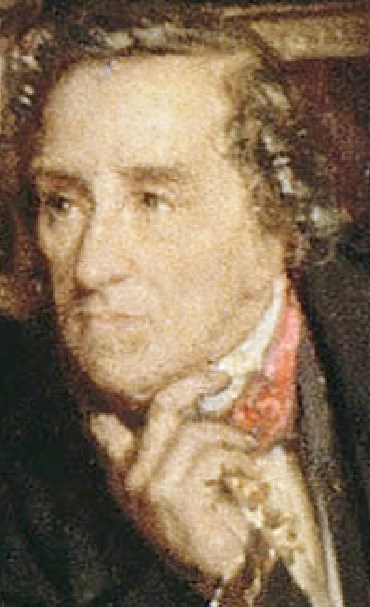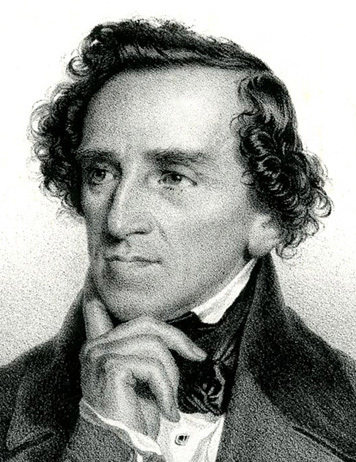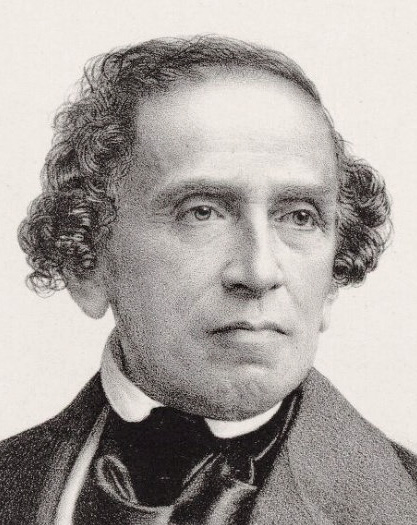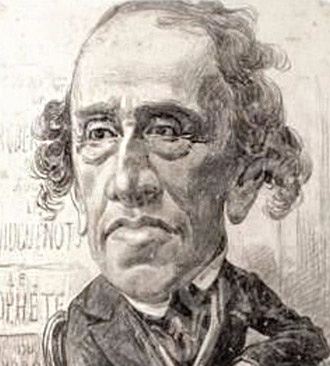Giacomo Meyerbeer (1791 – 1864), Grand opera composer
1st image: Soirée; 2nd: litho by Vogt (1849); 3rd: litho Desmaisons/Nadar (1857); 4th: caricature by Étienne Carjat (1858).
Jakob Liebmann Beer demonstrated musical precocity comparable to Mozart. By age four, he could reproduce melodies with his right hand while accompanying himself with the left. His father, a wealthy industrialist, invested heavily in his musical education. So impressed was his maternal grandfather Meyer that he bequeathed a substantial inheritance on the condition that the child adopt his name —thus the composite name Meyerbeer.
Meyerbeer is depicted here in conversation with his most prolific librettist, Eugène Scribe74.
Their collaboration on the melodramatic opera Robert le Diable (1831) brought them immediate acclaim. The opera was performed 470 times during Meyerbeer’s lifetime.
Frédéric Chopin wrote: “If ever grandeur was seen in the theater, I doubt it has reached the level of magnificence shown in Robert. It is a masterpiece. Meyerbeer has made himself immortal.”
Known for his artistic insecurity, Meyerbeer tailored his operas to the strengths of leading performers to ensure success. The role of Robert was composed specifically for tenor Louis Ponchard25, featuring a duet designed to showcase his ability to reach a high D. According to Hector Berlioz, Meyerbeer even paid critics to write favorable reviews —a practice that anticipates modern promotional strategies.
His subsequent operas, Les Huguenots (1836) and Le Prophète (1849), both co-written with Scribe, achieved similar success. Le Prophète featured star performers Gustave Roger04a as Jean de Leyde, and Pauline Viardot as Fidès, Jean’s mother, roles that captivated audiences across Europe.
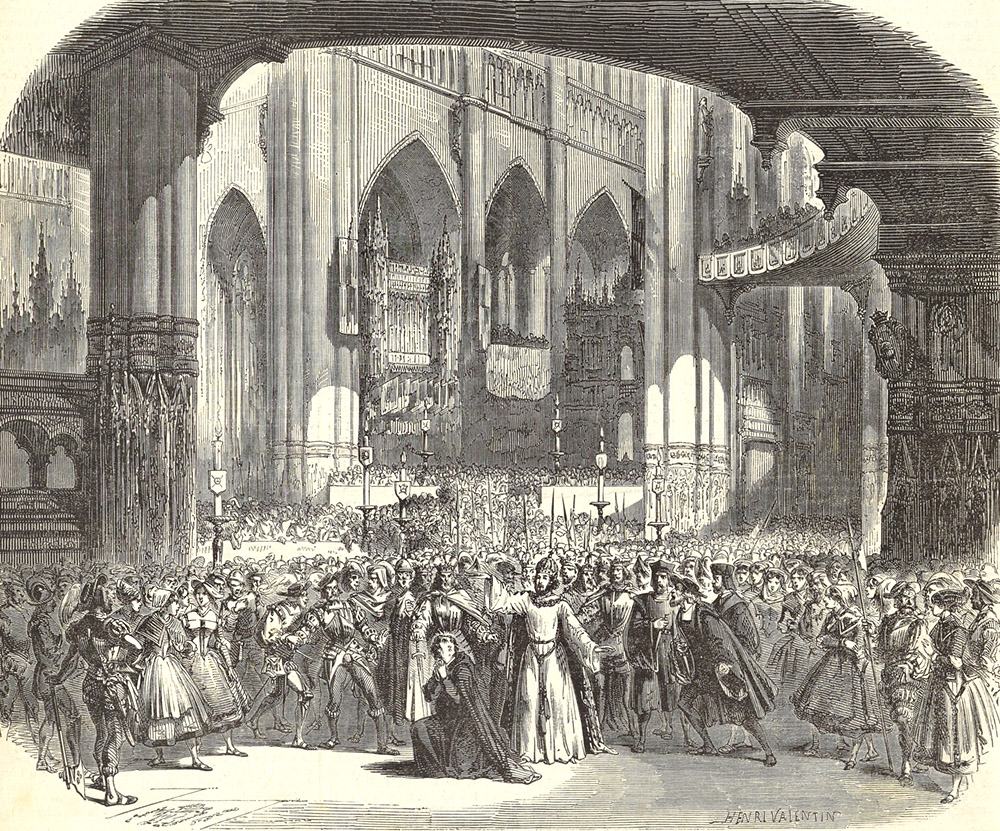
litho by Valentin (1849)
On 10 December 1852, at de Nieuwerkerke’s16 vendredi-soirée, pianist Adolphe Fumagalli (video) performed his fantasy for left hand on themes from Le Prophète, a work dedicated to Liszt. Meyerbeer predicted Fumagalli’s rise to fame, though the pianist died prematurely in 1856 at age twenty-seven.
The success of Fumagalli’s performance may have persuaded the reserved Meyerbeer to attend the soirée on 17 December 1852.
On that day, Meyerbeer recorded in his diary a morning visit to organ builder Édouard Alexandre with organist Lefébure-Wély29 to inspect a new invention: the sostenuto pedal, which allowed pianists to sustain selected notes. That evening, he joined guests including the “charmant petit virtuose” Georges Bizet and violinist Jean-Delphin Alard15.
This was Meyerbeer’s sole attendance at a vendredi-soirée. Giraud11 did not produce a caricature of him. At the time, Meyerbeer resided in Berlin, working on L’Étoile du Nord (1854), another collaboration with Scribe. It is unlikely that he posed for at Biard’s36 atelier for Une Soirée; the image appears to be a derivative copy of lithographs by Kriehuber (1847) or Vogt (1849). The cravate rouge added to the portrait signifies the rare distinction Meyerbeer received in 1849 as the first Prussian awarded the title of Commandeur of the Légion d’Honneur.
His final opera, L’Africaine (performed posthumously in 1865), enjoyed success but was hampered by the declining quality of Scribe’s libretto and extensive revisions. In 1866, Bizet described it in a letter as “a disgusting pile of notes.”
Meyerbeer’s anxieties extended beyond composition. Fearing premature burial, he left instructions in a sealed letter to be opened after his death: his body was to remain untouched for four days, with his face uncovered and two guards present to monitor signs of life. Bells were to be tied to his hands and feet to alert the guards in case of movement.
His diary (Briefwechsel und Tagebücher), known to exist at his death, only gained scholarly attention in the latter half of the twentieth century.
Anti-Semitic sentiment, evident in his former protégé Richard Wagner’s 1850 essay “Das Judenthum in der Musik,” intensified in the decades that followed, culminating in the Nazi ban on Meyerbeer’s works. His grand operas, known for elaborate stage effects such as sinking ships, remained largely neglected until the late twentieth century.
With about 75,000 monthly listeners on Spotify, Giacomo Meyerbeer is no longer the immensely popular opera composer he was in between the 1820s and 1860s, but a performance of Robert le Diable was played in Brussels in 2019, and a concert version of Le Prophète is planned for the Champs-Elysees Theatre in Paris for March 27 and 28, 2026.
